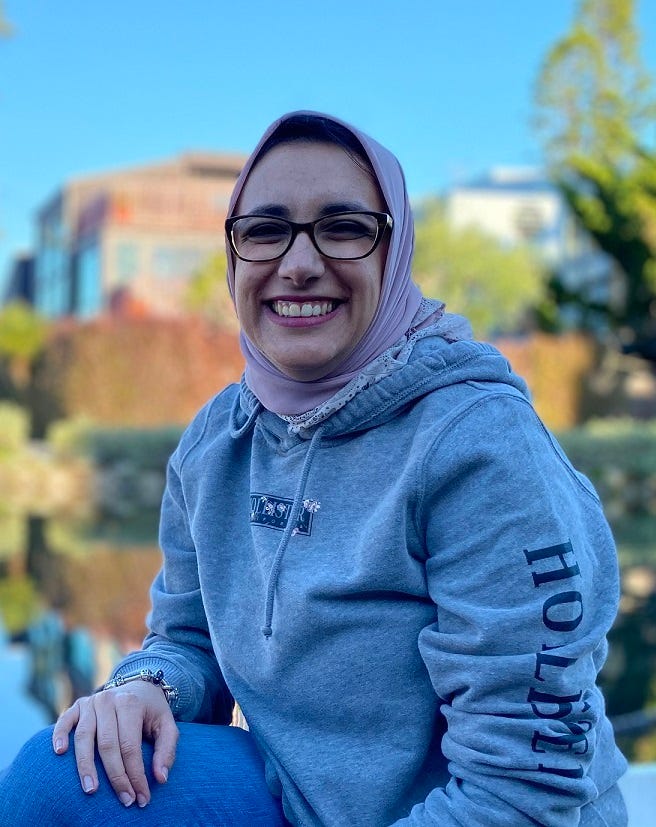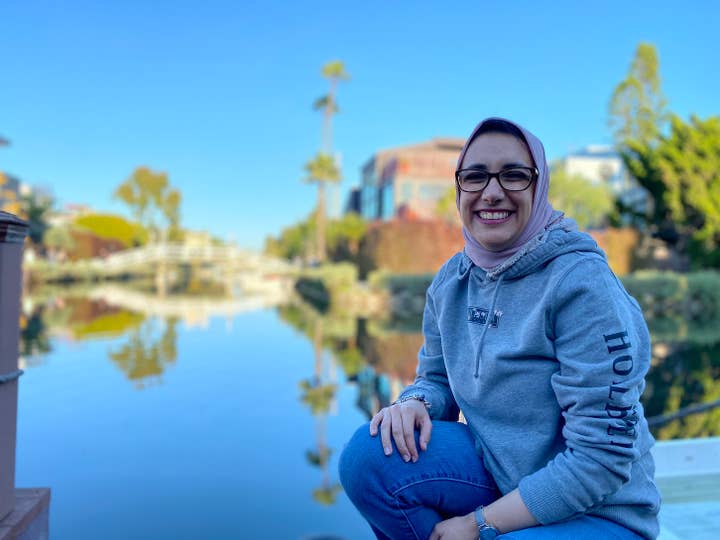Making remote work work
Two developers from Endless' global workforce focus on communication, trust, and culture in distributed development
Thanks to the novel coronavirus (COVID-19), companies large and small are increasingly embracing remote work and distributed development these days.
And in the process, there's an increased focus on those companies who have already been working remotely to learn what works, what doesn't, and how best to do the things the industry has always done in a new way.
Endless is one such company. For years, it has created games with an emphasis on coding education, including the sandbox creation game The Endless Mission and Terminal Two, a collection of PC and mobile games designed to introduce players to fundamental programming concepts. And to create those projects, it has relied on a development team scattered far and wide throughout the world.
Enrique Alejandro "Alejo" Pérez is a designer at Endless who works from his home in Colombia. Nada Hafez is a product manager at external software development house Rubikal in Alexandria, Egypt. They coordinate and collaborate with colleagues around the world on a daily basis.
In a recent conversation with GamesIndustry.biz, they're happy to not just discuss how to compensate for the logistical challenges of remote work, but to advocate for it based on some of its less obvious benefits.

"Remote work is amazing," Hafez says, citing its impact on the brainstorming process as one of the best parts of working with people in other parts of the world.
"If you put all these people from different backgrounds in one room, the outcome from this brainstorming session is going to be amazing," Hafez says. "Let alone that you're putting people from different countries, different continents of the world where each of them comes with a different experience, background, work culture, all of that... Even if it's a virtual chat room, you can find endless streams of ideas and the sky here is the limit. Everyone's going to surprise you."
She likens it to different people reading a book or contemplating a piece of art. The object they may be looking at is the same, but they may all have a different understanding of it based on their own personal context and background.
Pérez agrees that such collaborations have been fruitful in his six months working with Endless. In addition to working with Hafez, he's been working with colleagues in India, Costa Rica, and the US, and says everyone has had something to add. However, he also says that one key factor in any remote working environment, communication, has an additional challenge in such international set-ups.
"Even when you all speak the same language you need to understand the culture of the people you're working with"
Alejo Pérez
"Even when you all speak the same language -- English in this case -- you need to understand the culture of the people you're working with," Pérez says. "I would suggest someone starting to work remotely take the time to learn a bit of their culture -- what they do, what they consider appropriate or not -- and try to be as sympathetic as possible."
The best way to learn about a colleague's culture is to interact with people from that culture, Pérez says. Failing that, he says internet research and country-by-country etiquette videos on YouTube might be better than nothing.
Considering how many remote workers may be talking to their colleagues in a second language, Pérez also suggests ample use of emojis in group chat to get across context and emotion accurately. And of course, video chat is even better for that.
"Having meetings on camera and seeing faces helps you empathize with the people you're speaking to, to consider them as people with emotions," Pérez says.

Meetings can be difficult when someone's colleagues have a 10-hour time zone difference, but Hafez says the burden isn't excessive. She only has such meetings two or three days a week, she simply shifts her work day by a few hours when needed, and her colleagues schedule them at times that minimize the schedule disruption for all participants.
That said, it does necessitate a certain amount of flexibility and work-from-home policies, even for people who might normally come into an office to work, like Hafez.
"It comes with the package," she says. "I can't ask you to be online at 6pm or 7pm meeting with people from a different time zone and make you have to be at your desk at 8 in the morning."
She adds, "We're no longer tied to a 9-to-5 desk job, and that makes every team member work in their own conditions and environments. That boosts the team's productivity a lot, and I would say it influences their ownership in what they're investing effort on. I could work at my own pace and I would know that I have to deliver this because it's my responsibility. It boosted things for us so we never had to do the 'core hours.' It's so much more flexible and happier."
With that flexibility comes a requisite amount of trust. Video conferencing helps here again, Hafez says, as it's easier to trust people when you can see them face-to-face.
"In general, people are no longer bound to the limits of the land they live on"
Nada Hafez
Pérez points out that the on-boarding process for new teams is also set up to build that trust. Ordinarily when beginning work with a new team, he says Endless has them make a prototype in a month to evaluate how feasible it will be to work with them in the longer term. A couple teams didn't make it past that test period, but the ones that do have shown they're able to be trusted.
While that example shows that Endless wants to know it can trust its employees, Pérez says his Hafez's manager, US-based game director Nan Chu, does her best to make sure that trust goes both ways.
"There's a culture where she's your boss and she wants to trust you, but she wants the workers to trust her, too," Pérez says. "She'll check in on them, letting them know they can take off if they're not feeling well. Those kind of gestures are very important to build trust and meaningful relationships with the people you're working with "
While he rarely sees Chu because of the remote work set-up, Pérez says her approach has helped create more of a connection than many of his previous managers he had when working on-site in game development studios in Colombia.
And regardless of management's best intentions, Pérez says remote workers must actively look after their own needs as well.
"There are some risks attached to it," he concedes. "I try to go out at least once a day to take some sunlight, to walk around the block. Just to see some other people and be out from the four walls that are your office. The big risk is that if you let yourself keep working and working, your life just becomes your place. You wake up, you work, you go to sleep. So you have to be really responsible about yourself in that sense. Go out, take a break and interact with other people."
Ultimately, Hafez and Pérez have settled in to their remote working roles, and if this is the future of game development, they're ready for it.
"In general, people are no longer bound to the limits of the land they live on," Hafez says. "We're like global citizens who have to deal with the world equally regardless of where in the world we may be, and that's the best part of it."

